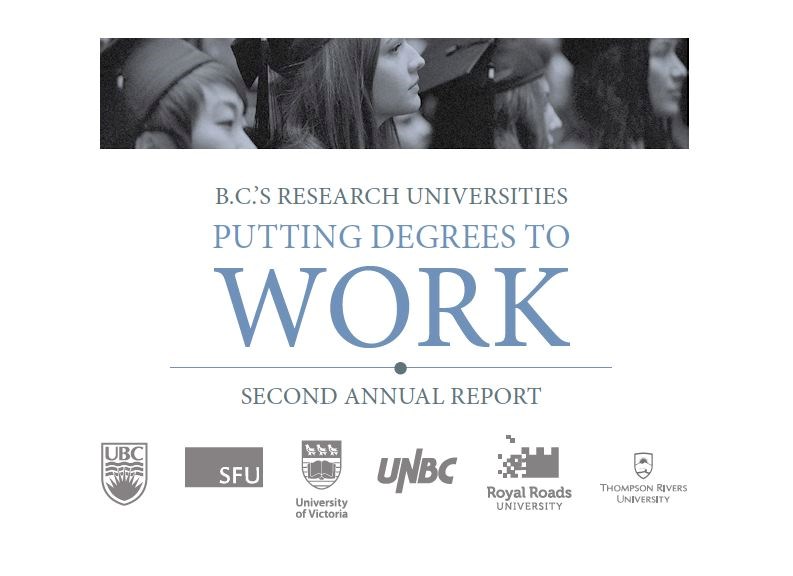Within two years of graduation, most University of Northern B.C. students are working in their chosen field and staying in the north, according to a new report.
UNBC president Daniel Weeks said the report Putting Degrees to Work, which looked at B.C.'s six research universities between 2008 and 2012, shows the value in getting a post-secondary education.
At UNBC, 69 per cent of graduates were still living and working in the north, 78 per cent said their program of study was relevant to their career and 95 per cent were satisfied, or very satisfied, with their education.
Those results echoed the response Weeks saw when the UNBC Alumni Survey was published in June.
"(It's) always nice to get confirmation of what you already knew," he said.
"For me one of the most gratifying ones is that nearly 70 per cent of grads are living and working in the north not long after their graduation," Weeks said. "That speaks to see the initial vision of the university and its role here in the north. It's serving the north and helping build the future."
The report comes on the heels of its No. 1 Maclean's ranking in the "primarily undergraduate" category.
The satisfaction levels almost echoed the June alumni survey, which had 93 per cent of almost 1,500 respondents say they rated themselves "very" or "somewhat" on the post-secondary satisfaction scale.
Those successes can translate to recruitment, Weeks said.
"I think you put all that together and it really does help us to a great degree to get out there and sell this university," said Weeks, who also highlighted how much grads were earning.
Nearly half of UNBC grads - 48 per cent - were earning $50,000 or more, well above the salaries earned by other young people entering the workforce.
That is almost $20,000 more than young people, aged 15 to 24, entering the workforce without a degree.
Grads at the six institutions in the engineering and health sector were on the whole more successful two years out, earning $62,000 and $66,560 respectively.
"This study reveals that B.C. university graduates are well positioned to succeed in today's economy and have a proven ability to prosper, even during times of economic uncertainty," said the report summary, produced by the Research Universities' Council of British Columbia.
It used data from BC Stats, which surveys students two years after they graduate.



